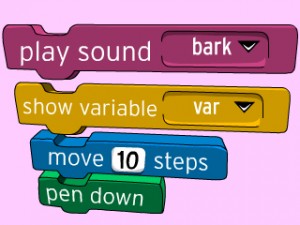 People throughout the world are taking new and innovative approaches when it comes to trying to engage youth in coding education. For example, BBC is giving away micro-bit computers, according to TechCrunch. Steve O’Hear of TechCrunch covers this in a recent article titled “In Bid To Get British Kids Coding, BBC To Give Away 1 Million ‘Micro Bit’ Computers.”
People throughout the world are taking new and innovative approaches when it comes to trying to engage youth in coding education. For example, BBC is giving away micro-bit computers, according to TechCrunch. Steve O’Hear of TechCrunch covers this in a recent article titled “In Bid To Get British Kids Coding, BBC To Give Away 1 Million ‘Micro Bit’ Computers.”
O’Hear writes, “In a move that will bring a nostalgic smile to some British kids (and teachers) of the 80s, the BBC has announced that it is to produce a new educational mini-computer — codenamed the ‘Micro Bit’, a play on the broadcaster’s original ‘BBC Micro‘ computer — and will give away 1 million devices to British school kids aged 11. It will be distributed nationwide from autumn 2015. The new hardware project is part of the BBC’s wider ‘Make it Digital’ initiative to inspire ‘a new generation to get creative with coding, programming and digital technology,’ as the UK attempts to fill an anticipated ‘skills gap’ in the country’s growing digital economy. The move, which sees the BBC partner with over 25 organisations to develop the Micro Bit, including chip-makers ARM and Nordic Semiconductor, Microsoft, and Samsung, is also interesting in that it seems determined to address issues that caused controversy when the original BBC Micro was released.”
Meanwhile, watching live streams of people coding is becoming a major trend all over. Venture Beat News’ Chris O’Brien discusses this in a recent article titled “Watching live streams of people coding is now officially a thing.” O’Brien writes, “Across the Internet, sites are popping up that let people watch other people code for hours and hours. Indeed, live streams of coding are gaining enough momentum that there’s even a virtual conference being organized this weekend by some folks via Reddit. Internet video in general is exploding. But this latest, and seemingly unlikely, phenomenon comes on the heels of Twitch’s big success. The San Francisco-based company proved that there was a massive audience of people who were eager to spend hours each day watching and learning from other people’s game play. That led Amazon to acquire Twitch for almost $1 billion last year.”
While trends and contests can certainly be effective in getting the attention of youth, tutoring from experienced coding teachers is the best way to master coding. With CodeRev Kids, that’s exactly what you get. We have a wide variety of spring, summer, and afterschool programs that focus on subjects such as robotics, app development, and video game making.
At CodeRev Kids, we customize our programs for individual students to make sure the lessons are both thorough and engaging. Our students learn Computational Thinking, which encompasses a wide range of programming concepts and languages. For more information, check out some of our different class options.
For whatever youth coding education needs you might have, you can’t go wrong with CodeRev Kids!





